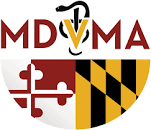2025 Summer Conference
Speakers
June 22-24, 2025
Turf Valley Resort & Conference Center
Ellicott City, MD
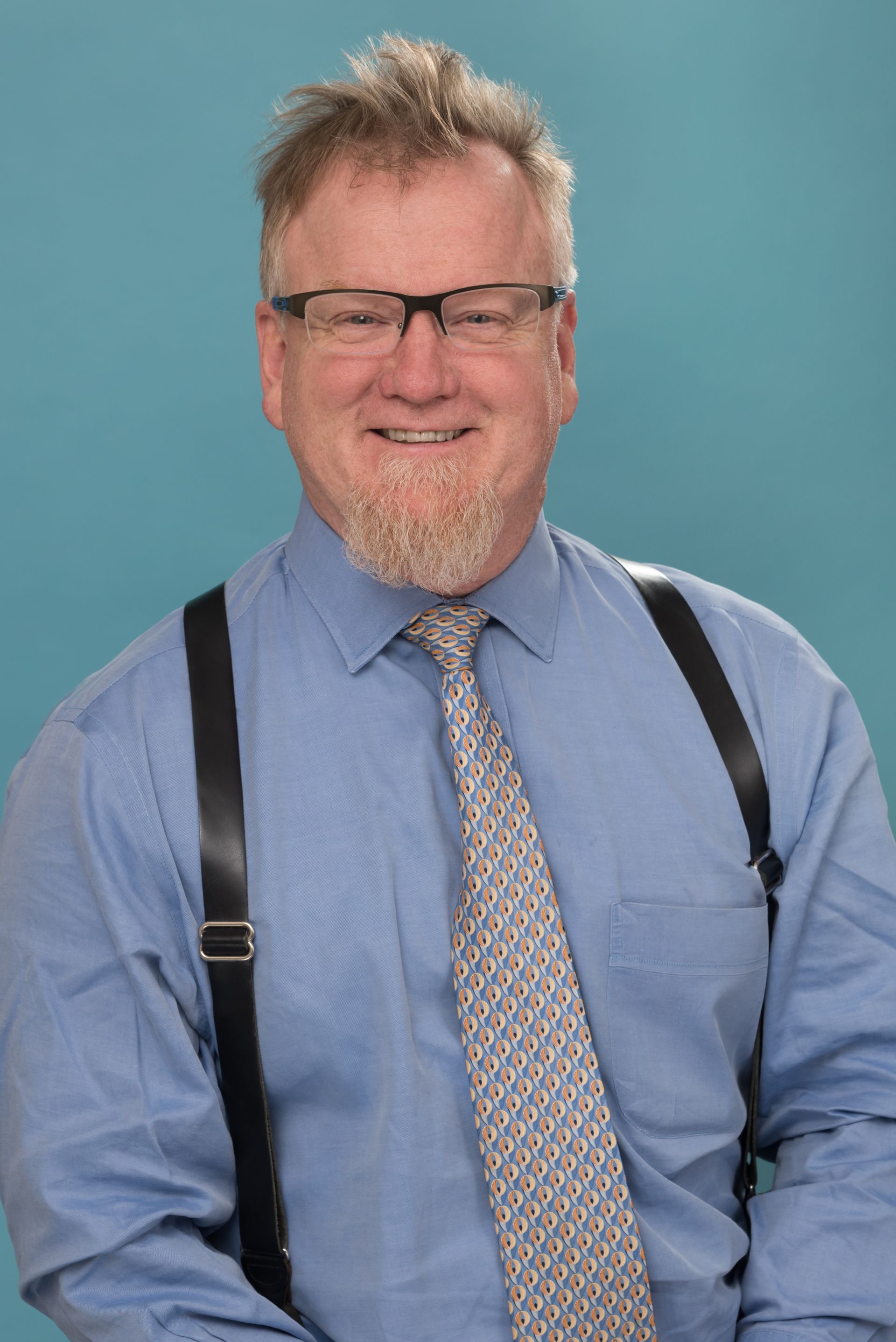
John J. McDonnell
DVM, MS, DACVIM
Session Description
This two-hour multi-disciplinary presentation will provide a comprehensive overview of radiation treatment options for animals presenting with neurological diseases. Attendees will gain valuable insights into the application of radiation therapy in veterinary neurology through case studies. The structure will consist of a neurologist presenting the case, clinical findings, imaging findings, and immediate treatment objectives. The radiation oncologist will then take over the case and discuss treatment options, considerations for treatment, discussion points with clients, and, finally, the patient's outcome.
This presentation will equip veterinarians with the knowledge of available radiation therapy as a treatment option for animals with neurological diseases, ultimately improving patient outcomes and quality of life.
Speaker Bios
John J. McDonnell, DVM, MS, DACVIM
Practicing Since: 1998 | Joined VNIoC: 2012
After earning his Veterinary (DVM) and Master’s (MS) degree from the University of Missouri, Dr. McDonnell spent four years in general practice in Missouri and Oregon. Knowing he wanted to do more, he undertook a three-year neurology-neurosurgery residency at Tufts University in Massachusetts, and in 1998 was board-certified in neurology by the American College of Veterinary Medicine.
Since then, Dr. McDonnell has been on a dual path of academia and private practice, first joining the faculty of University of Georgia where he taught in the hospital and classroom. From 2000 to 2004, he was chief of neurology-neurosurgery at Tufts University. There, he helped established the in-house magnetic resonance imaging (MRI) suite, a brain surgery unit, and minimally-invasive CT-guided biopsy program.
Since moving to Maryland, Dr. McDonnell has become well-known for his work in the definitive treatment of brain tumors and spinal cord tumors, foramen magnum decompression/dorsal laminectomies, and Wobbler’s disease. In 2012, seeing the need for veterinary MRIs, he opened Veterinary Imaging of the Chesapeake.
Teaching continues to be important to Dr. McDonnell. Believing that a balance of the academia and private practice enables him to keep at the forefront of veterinary neurology, he is an assistant clinical professor at Tufts University and a consultant in neurology at the University of Pennsylvania College of Veterinary Medicine.
Dr. McDonnell has lectured nationally, internationally, and regionally, and has published more than 20 journal articles, reviews, and book chapters. He is a founding member of the Veterinary Neurosurgery Society, and the exhibit coordinator for its biennial symposium.
Dr. McDonnell and his wife, Leigh, who is Director of the New York Aquarium, have a very precocious Hound/Labrador Cross named Drake.
Erica Buchanan, DVM DACVR
Erica grew up in Ontario, Canada and from an early age had a fascination with animals and science. In high school she decided that a career in veterinary medicine was what she wanted to pursue. After completing a Bachelor of Science, Honours Zoology degree at the University of Guelph she worked in a number of different animal-related jobs, including the Donkey Sanctuary of Canada.
Erica attended St. George’s University School of Veterinary Medicine and earned her DVM after completing her clinical year at the University of Florida. She then went on to complete a rotating internship at BluePearl Veterinary Partners in Tampa, and a specialty internship in radiation oncology at the University of Pennsylvania Matthew J. Ryan Veterinary Teaching Hospital in Philadelphia. Erica then moved to Manhattan for a residency in radiation oncology at the Animal Medical Center, which she completed in July 2019.
When not treating animals with cancer Erica can be found snuggling with her cat Nugget whom she bottle-raised as a kitten, crocheting blankets and sweaters for her niece and nephew, and walking around Annapolis exploring the local culture and history.

Erica Buchanan
DVM, DACVR
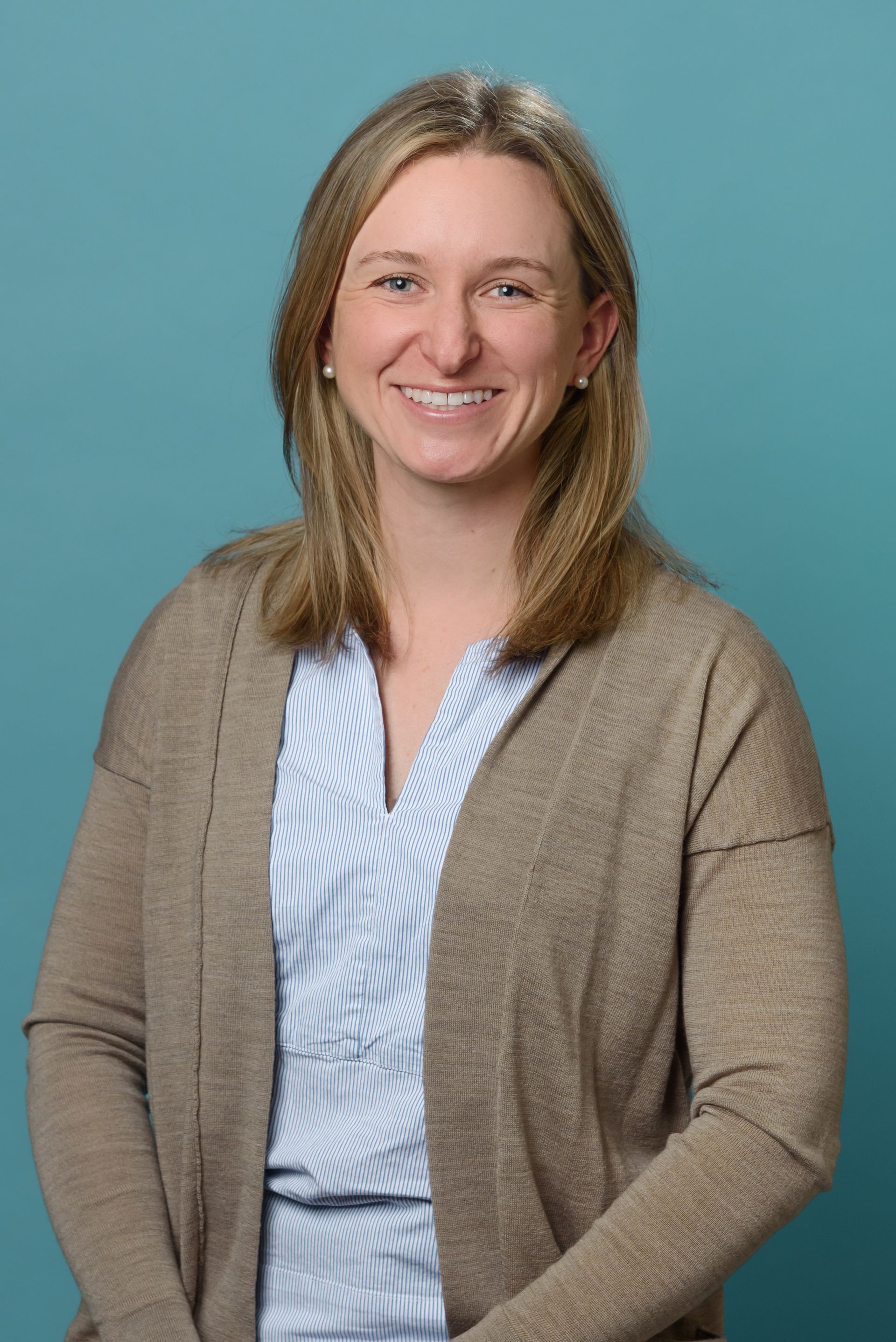
Julianna C. Mannix
VMD, DACVIM
Session Description
TA discussion about intervertebral disc disease from localization and diagnosis to treatment and prognosis.
Speaker Bio
Julianna C. Mannix, VMD received her veterinary degree from the University of Pennsylvania in 2017 after receiving her undergraduate degree from Clemson University. She completed a rotating
internship at Angell Animal Medical Center in Boston, followed by a neurology specialty internship at the Veterinary Specialty Hospital in San Diego. Dr. Mannix spent a year at the University of Missouri working with clinical trials for canine degenerative myelopathy and neuronal ceroid lipofuscinosis, then went on to complete a three-year neurology/neurosurgery residency at North Carolina State University.
Dr. Mannix and her husband, Michael, moved to Maryland after she finished her residency. They have a Pomeranian named Oliver, and a cat whose name changes every few months depending on her behavior. In her free time, Dr. Mannix enjoys running, checking out new restaurants and coffee shops, and spending time outside.
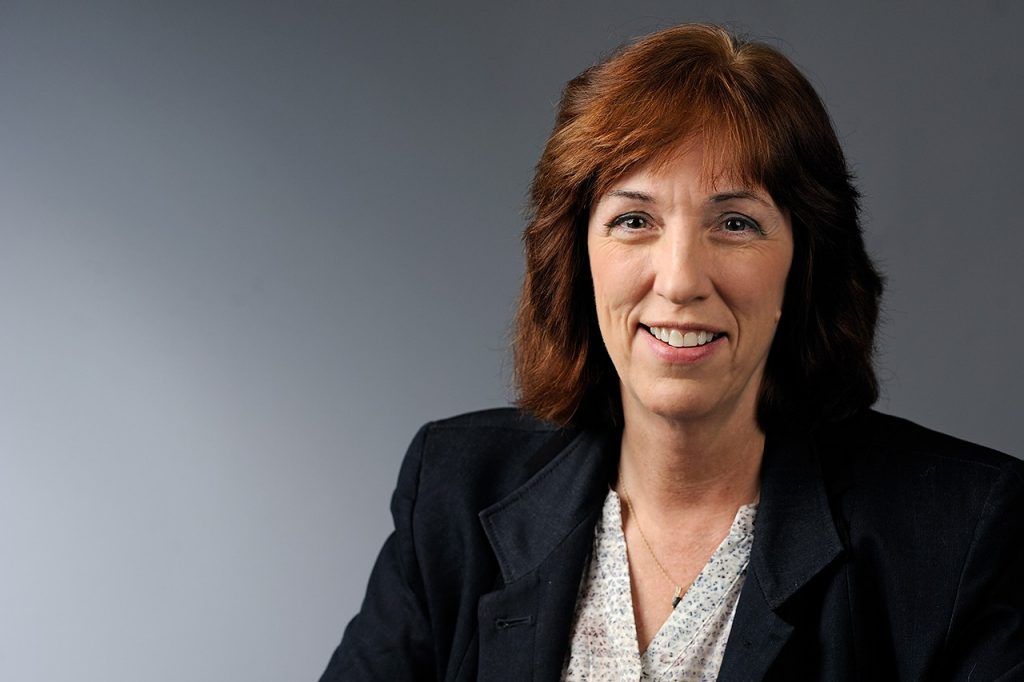
Laura Hungerford
DVM, MPH, PhD, CPH
Speaker Bio
Laura L. Hungerford, DVM, NREMT, MPH, PhD, CPH, FNAP
Dr. Laura Hungerford is an epidemiologist, a professor, and the Head of the Department of Population Health Sciences in the Virginia Maryland College of Veterinary Medicine at Virginia Tech. She was previously a faculty member at other university veterinary and medical schools and also served as a Senior Science Advisor at the FDA. She has been active in teaching a wide range of epidemiology and public health courses to graduate, medical, and veterinary students, as well as providing continuing education for veterinarians and other health professionals. Her publications, grants, and research interests include collaborative studies that take a One Health approach to risk factors and patterns of well-being and disease. She has collaborated on developing innovations in drug review at FDA; human and animal infectious disease epidemiology; mental health; and projects with zoos and wildlife agencies involving health of raccoons, deer, frogs, big cats, birds, aquatic animals, and other species.
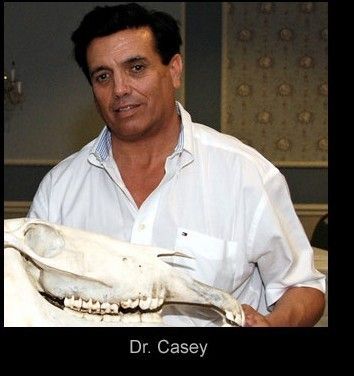
James Casey
DVM, MS
Session Descriptions
Testing and Regulation of Racing and Performance Horses
From this presentation, participants will learn that current drug regulations in horse racing are often based on outdated or misunderstood science, particularly the unrealistic expectation of "zero tolerance" in an era of ultra-sensitive drug testing. It highlights how well-intentioned rules can unintentionally punish responsible veterinary care, misclassify therapeutic substances, and create ethical and practical conflicts. Ultimately, it calls for reform grounded in scientific reality, veterinary expertise, and a balanced approach to horse welfare and fair competition.
This presentation discusses the fact that overregulation in horse racing, particularly around drug testing and veterinary care, is driven by scientific misunderstanding and rigid policies. It critiques the unrealistic "zero tolerance" approach, noting that ultra-sensitive tests can detect harmless trace amounts of therapeutic substances. The presentation highlights issues such as environmental contamination, natural hormone presence, and misaligned rules requiring FDA approval for treatments regulated by the USDA. It warns that these regulations can delay or prevent necessary care, ultimately harming horses. The conclusion calls for reform that balances fairness, science, and animal welfare.
Veterinary Equine Dentistry for the Veterinary Practitioner (Part 1)
Veterinarian Participants will learn about the history of veterinary medicine and dentistry, the practice of Equine Dentistry requires considerable skill, knowledge, and expertise. They will get a refresher on the differences in horse’s teeth, problems indicating dental issues, common abnormalities, and Let’s Talk About Wolf Teeth.
Veterinary Equine Dentistry for the Veterinary Practitioner (Part 2)
In this session Veterinarian Participants will learn about the inadequacies of Laypeople (tooth floaters) practicing dentistry on horses, why Equine Dentistry is Veterinary Medicine and best left in the hands of the Licensed Veterinarian. Also, Advances in Equine Medicine will be discussed and What to look for in a good Equine Veterinarian doing Dentistry.
Speaker Bio
Dr. Casey has trained and raced thoroughbreds throughout the mid-Atlantic tracks since the early 1980's. He continues to train a small stable of his own horses and exercises them himself regularly.
Dr. Casey achieved his Doctor of Veterinary Medicine (D.V.M.) degree from Tuskegee University in Alabama, 1988. Dr. Casey is also a graduate James Madison University in Virginia. He earned a Master’s of Science Degree, as well as Bachelor of Science Degrees with studies in Biology and Chemistry.
Dr. Casey has Veterinary Licenses and is a State Accredited Veterinarian in the following states: Virginia, Maryland, Delaware, Georgia, Pennsylvania, Florida, New Jersey and Kentucky. Dr. Casey is also certified to practice by the Federation of St. Kitts / Nevis island country in the Caribbean (Internationally).
In 1988, Dr. Casey established his practice, Equine Sports Medicine, and Dentistry. His veterinary specialty interests include lameness problems, pre-purchase examinations, and the comprehensive care of Performance and Racing Horses.
Using modernized equipment, Dr. Casey practices Advanced Equine Dentistry on all types of horses.
Dr. Casey is a founding member of NAARV ( North American Association of Racetrack Veterinarians ).
Dr. Casey has taught and been a guest instructor of clinical equine medicine and surgery in several veterinary schools including Tuskegee University School of Veterinary Medicine, Iowa State University’s School of Veterinary Medicine, The University of the West Indies, University of Edinburgh in Scotland.
Dr. Casey learned to ride horses at an early age while growing up in the Shenandoah Valley of Virginia. As a teenager, he road professionally as a jockey (flat races)
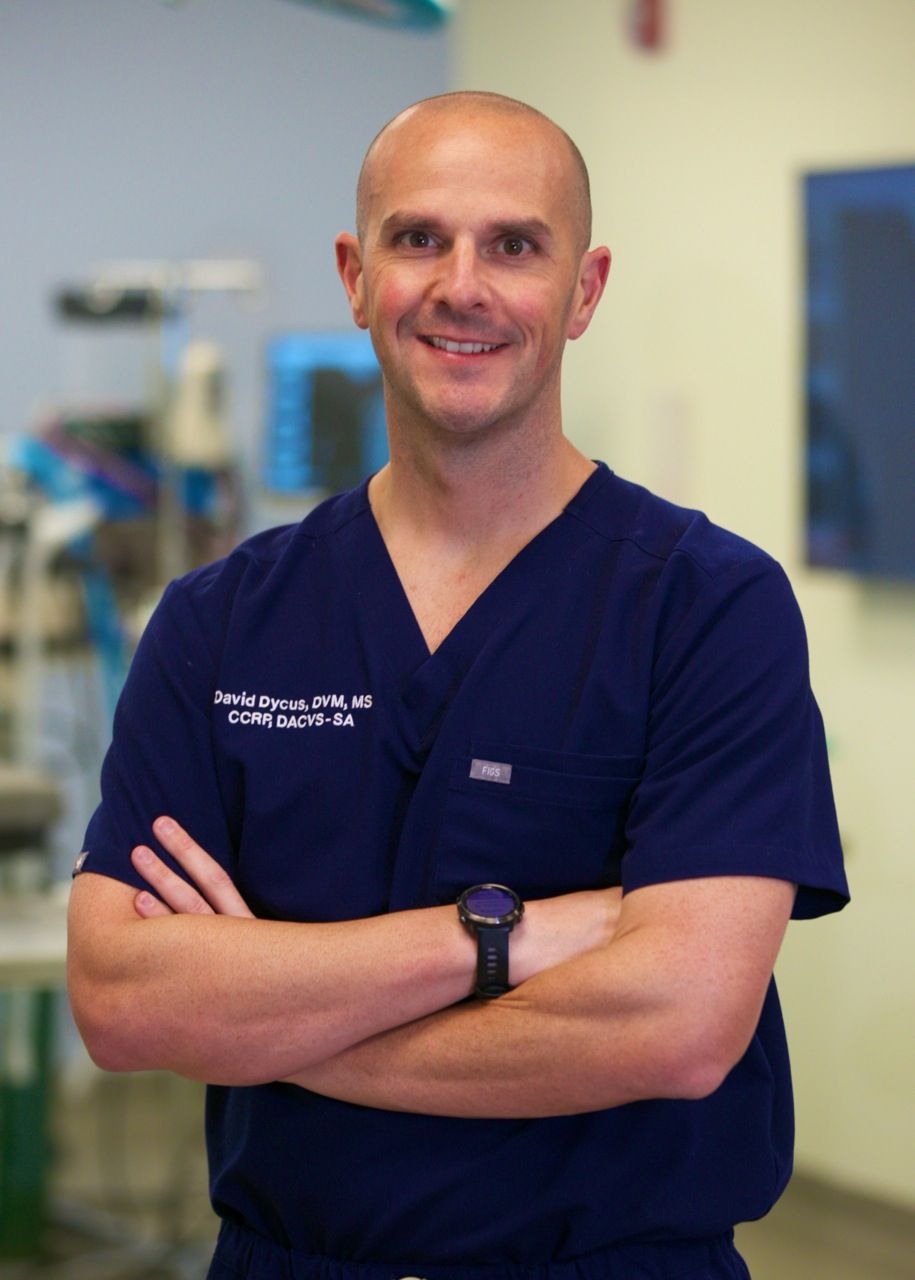
David Dycus
DVM, MS, CCRP, DACVS-SA
Speaker Bio
David L. Dycus, DVM, MS, CCRP
Diplomate, American College of Veterinary Surgeons- Small Animal
Founder,
Ortho Vet Consulting
Founder/Surgeon,
Fusion Veterinary Orthopedics
Dr. Dycus attended Mississippi State University’s College of Veterinary Medicine for his veterinary degree, Auburn University for a small animal rotating internship, and Mississippi State for a combined surgical residency and Masters degree.
Dr. Dycus is frequently asked to lecture locally, nationally, and internationally. He has given over 300 continuing education lectures and taught over 150 laboratories. He has published numerous research articles and authored or co-authored several book chapters. He is the co-editor of the textbook: Complications in Canine Cranial Cruciate Ligament Surgery. In 2023 Dr. Dycus received the Veterinary Hero’s Award in surgery by DVM360 and was named by DVM360.com as one of the 10 veterinarians to watch in 2018. Dr. Dycus is a frequent contributor for updates in orthopedics to several veterinary websites and magazines. Dr. Dycus has also been featured on Sirius XMs Doctor Radio’s segment on Pet Health and Orthopedics. His passion for teaching has allowed Dr. Dycus to become a laboratory instructor for the CBLO, TPLO, extra-capsular stabilization, medial patella luxation, angular limb deformity, and fracture repair. He is on faculty for AO, faculty for the UPenn Working Dog Practitioner Certification, and he is an orthopedic consultant for VIN (Veterinary Information Network).
Along with being a scientific reviewer for multiple journals, he serves on the editorial review board and is the associate editor (orthopedics) for Veterinary Surgery, the official publication of the American and European Colleges of Veterinary Surgeons. He has previously held an appointment on the research committee for the American College of Veterinary Surgeons. Currently Dr. Dycus is on the Board of Trustees for the American College of Veterinary Surgeons, is a council member for the Association for Veterinary Orthopedic Research and Education (AVORE) and is on the education committee for AO North America.
Dr. Dycus became a certified canine rehabilitation practitioner through the University of Tennessee in 2015. He is the founder and surgeon at Fusion Veterinary Orthopedics where he has a focus on complex and minimally invasive fracture repair, arthroscopy, 3D printing, total joint replacement, sports medicine, as well as angular limb deformity correction. In addition, he is the founder of Ortho Vet Consulting, an educational consulting and orthopedic coaching service.
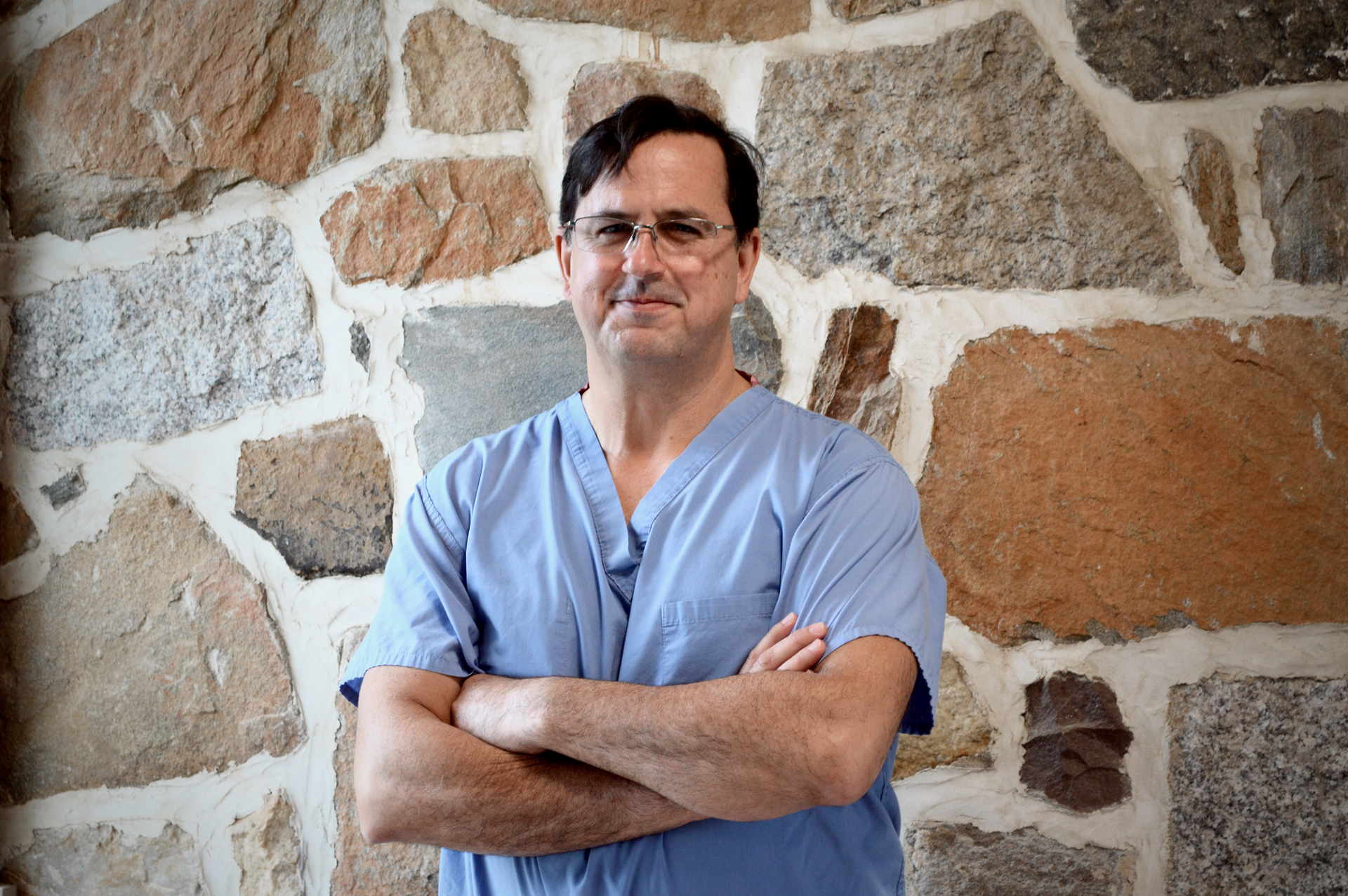
José M. García-López
VMD, Dipl. ACVS, Dipl. ACVSMR
Session Descriptions
Condylar Fractures, Slab Fractures Early Detection, Stabilization for Transport and Intervention
This lecture explores the early detection, stabilization, and surgical management of equine condylar and slab fractures, with a focus on improving outcomes in athletic horses. Through detailed case studies and advanced diagnostic imaging—including radiography, CT, PET, and nuclear scintigraphy—attendees gain critical insights into identifying stress-related bone injuries before catastrophic failure. The session highlights appropriate first aid and immobilization strategies tailored to fracture type and stability, as well as contemporary surgical techniques for fracture repair. Emphasis is placed on evidence-based clinical decision-making to preserve both life and athletic potential in equine patients.
Concepts and Techniques of Utilizing CT and Minimally Invasive Osteosynthesis in Equine Orthopedic Repair
This lecture focuses on the principles and clinical application of computed tomography (CT) and minimally invasive osteosynthesis (MIO) in equine orthopedic repair. Highlighting the advantages of Minimally Invasive Plate Osteosynthesis (MIPO)—including reduced soft tissue trauma, lower infection risk, and preservation of vascular integrity—the session explores how CT and fluoroscopy guide implant placement with precision. Through detailed surgical cases and imaging examples, attendees gain insight into preoperative planning, fracture configuration analysis, intraoperative navigation, and postoperative outcomes. The lecture emphasizes the integration of advanced imaging and surgical techniques to enhance outcomes in the repair of complex equine fractures while minimizing surgical morbidity.
Meniscal Injury in Sport Horses: Diagnostics and Long-term Outcomes
This lecture explores the diagnosis, treatment, and long-term outcomes of meniscal injuries in sport horses, a leading cause of hindlimb lameness. Emphasizing the complexity of stifle anatomy and the diagnostic challenges it presents, the presentation reviews the role of modalities such as ultrasound, radiography, and arthroscopy—including needle arthroscopy—for accurate lesion identification. Using case studies, including long-term follow-up data, we will discuss arthroscopic grading of meniscal injuries, treatment strategies including arthroscopic debridement, and factors influencing return to athletic performance. The lecture highlights that although prognosis varies by injury severity, many horses can return to sport with appropriate diagnosis and management.
Speaker Bio
American College of Veterinary Surgeons
American College of Veterinary Sports Medicine and Rehabilitation
Associate Professor of Large Animal Surgery
Department of Clinical Studies- New Bolton Center
University of Pennsylvania School of Veterinary Medicine
José obtained his VMD from the University of Pennsylvania in 1996 and went on to complete a 1-year Equine Internship at Mid-Atlantic Equine Medical Center (Ringoes, New Jersey, USA), followed by a 3-year Large Animal Surgical Residency with a special focus on Equine Sports Medicine at Tufts University in North Grafton, Massachusetts. He became a Diplomate of the American College of Veterinary Surgeons (ACVS) in 2001 and the American College of Veterinary Sports Medicine and Rehabilitation (ACVSMR) in 2013.
Following his residency, José obtained a Lecturer position in the Section of Equine Sports Medicine and Imaging at the University of Pennsylvania’s New Bolton Center in Kennett Square, Pennsylvania, where he remained for 2 years. From 2002 through 2022, he returned to Tufts Cummings School of Veterinary Medicine as an Assistant and then Associate Professor in Large Animal Surgery, where he helped develop the Equine Sports Medicine and Surgery Service, of which he served as its Director from 2014-2022. While at Tufts, he focused his work on the diagnosis and management of musculoskeletal disorders and the use of advanced imaging in the equine athlete. In 2022, he returned to the University of Pennsylvania’s New Bolton Center, where he is currently an Associate Professor of Large Animal Surgery, focusing on equine orthopedics, including arthroscopy and fracture repair, lameness diagnosis and treatment, and advanced imaging.
Dr. García-López is currently one of the Large Animal Regents of the ACVS. He is also a faculty member of AO VET North America (AO VET NA), of which he served as Chair from 2021-2024, and is currently the VET representative for the AO NA Board of Directors. He regularly lectures and provides consultations at the national and international level.
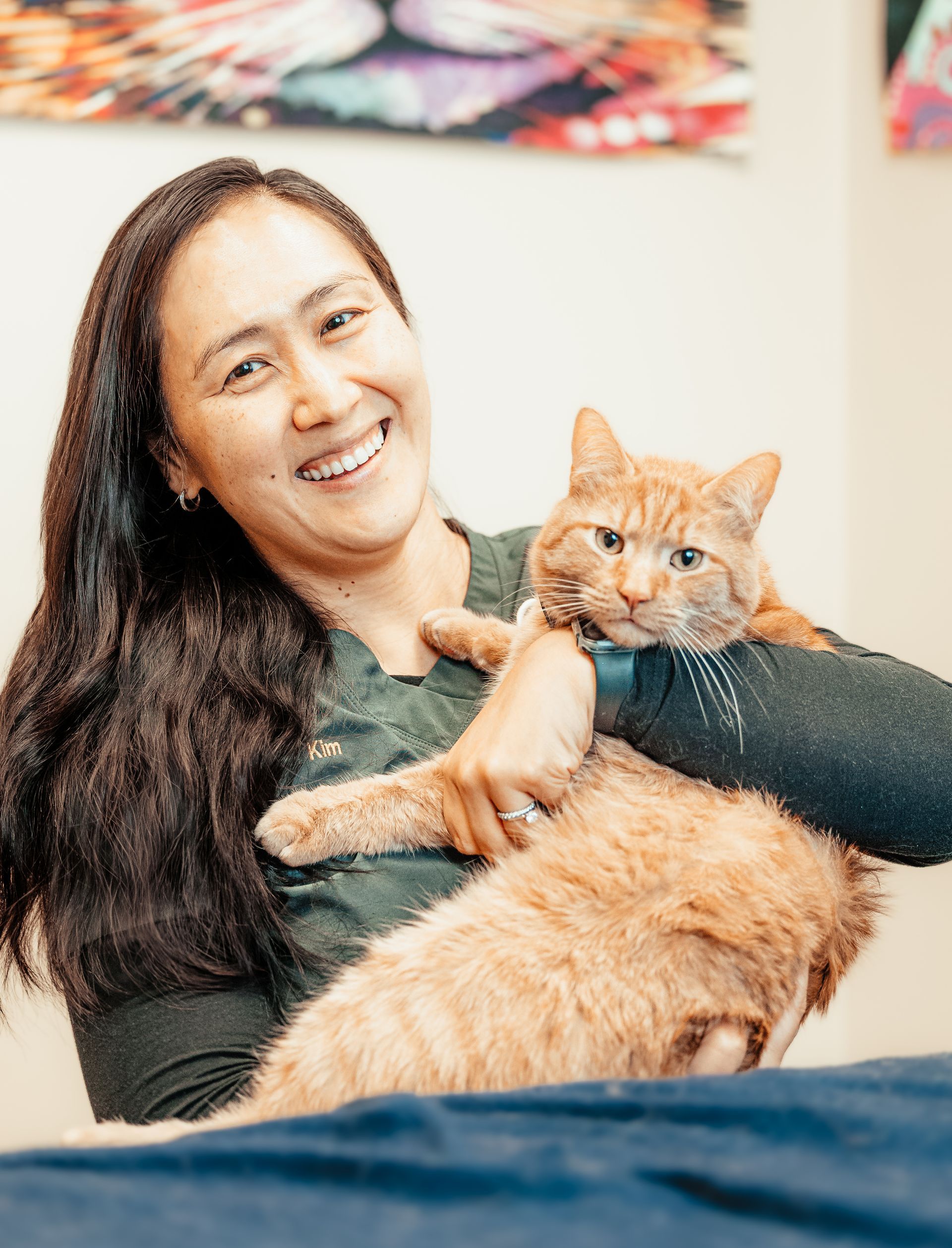
Inshil Kim
DVM, MBA
Session Descriptions
Radiology for Technicians
Understanding anatomy of dog and cat head, dental terminology, and learning bisecting angles when obtaining dental radiographs.
Surgical Extraction Tips and Tricks
Understanding surgically important anatomy and major neurovasculature of dog and cat head, how/where to section teeth, and how to deal with common complications.
Oral Tumors or Not in Cats
Squamous cell carcinoma vs. other tumor-like lesions in feline oral cavity
Speaker Bios
Dr. Inshil Kim DVM, MBA
Diplomate, American Veterinary Dental College
Dr. Inshil Kim was born and raised in Korea, arriving in the US in 2003 to prepare for veterinary school. She attended St. Matthews University on Grand Cayman earning both a veterinary degree and an MBA. Dr. Kim has lived in Indiana, Oklahoma, New York and Guam, and California before joining the team at the Animal Dental Center. She is a diplomate of the American Veterinary Dental College and an associate instructor at the Animal Dental Training Center in Towson Maryland. A true believer in the role of veterinarian as a pet advocate, Dr. Kim is thrilled to help pet patients at the Animal Dental Center for their dentistry and oral surgery needs. When not caring for pet’s mouth, Dr. Kim loves to go hiking with her family.
Dr. Melinda Spaar DVM
Associate, Dentistry & Oral Surgery
Dr. Spaar graduated from the University of Maryland College Park with a Bachelor of Science in Animal Science in 2003 and graduated from Virginia Maryland Regional College of Veterinary Medicine with a Doctorate in Veterinary Medicine in 2008. She has practiced general small animal medicine for 13 years in Maryland and 1 year in Virginia prior to starting her specialty residency with the Animal Dental Center (ADC) in August 2022. Dr. Spaar will be finishing her residency at the end of August 2025. In the free time, Dr. Spaar is engaged in her son's sports activities and a proud goalie mom.
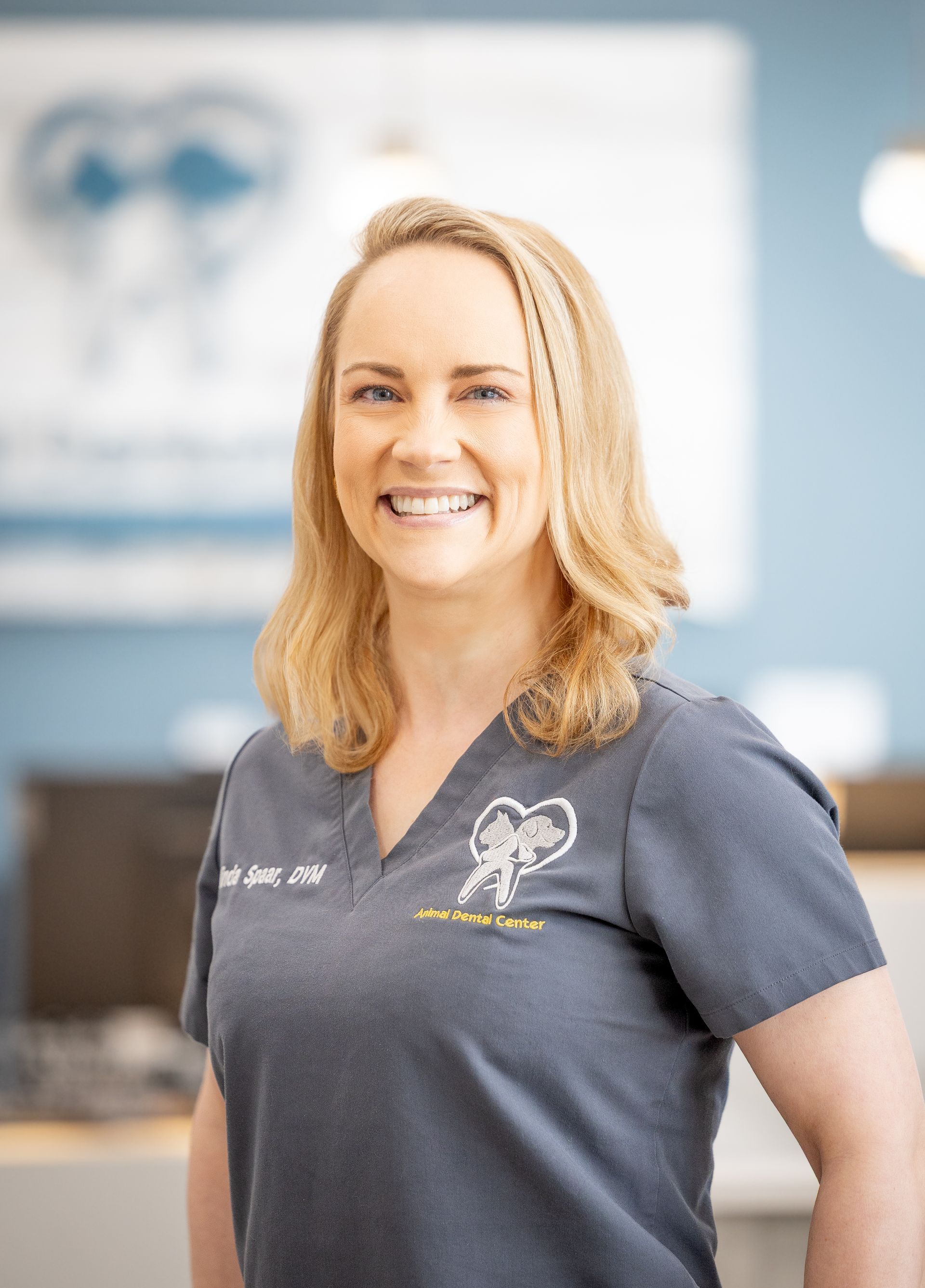
Melinda Spaar
DVM

Matthew W. Brunke
DVM, CCAT
Session Descriptions
Not Just an Old Dog Disease: Changing Mindsets on Canine Osteoarthritis
This presentation challenges the traditional view that osteoarthritis (OA) is primarily a condition affecting only senior dogs. It emphasizes that canine OA can develop in dogs of all ages, including young and active ones, often as a consequence of developmental joint disorders or injury. The lecture underscores the importance of early detection, proactive management, and shifting veterinary and client mindsets toward early intervention rather than late-stage treatment. Key discussion points include recognizing subtle early signs, incorporating multimodal therapy sooner, and utilizing modern diagnostics and therapies to improve long-term outcomes and quality of life in dogs of all ages.
Intra-articular Options for OA Management in Dogs: 2025 Edition
This forward-looking lecture reviews the latest advancements in intra-articular (IA) therapies for canine osteoarthritis (OA), highlighting both established and emerging treatments. It covers current clinical evidence and practical applications of several IA modalities, with a focus on three key areas:
- 2.5% Polyacrylamide Hydrogels – These hydrogels act as a biocompatible, long-lasting joint filler that integrates with synovial tissue to reduce inflammation and improve joint lubrication. Clinical outcomes suggest improved mobility and pain relief in OA-affected dogs, with minimal adverse effects and a single-injection protocol.
- Regenerative Medicine – This includes platelet-rich plasma (PRP), mesenchymal stem cells (MSCs), and autologous protein solutions. These biologic therapies aim to restore joint health by modulating inflammation and promoting tissue repair, offering a customizable and minimally invasive treatment option for early- to mid-stage OA.
- Radiosynoviorthesis (RSO) – An emerging IA approach, RSO uses radiopharmaceuticals to target and ablate inflamed synovial tissue, thereby reducing pain and joint effusion. Though more commonly used in human medicine, preliminary veterinary applications show promise for refractory OA cases.
The lecture encourages a multimodal and individualized treatment strategy and emphasizes the importance of selecting appropriate candidates for each IA option based on disease stage, joint involvement, and client goals.
Nutracuticals for Joint Health/Mobility: What’s the Evidence? 2025 Edition
Learning objective for this lecture will be the understanding of currently available supplements for joints and muscles. It will be broken down by ingredient and the pros/cons and evidence available for each will be discussed. Then how to apply this in the individual’s practice for their patients will be reviewed.
Learning Objectives:
- Understand the common nutraceuticals used to support canine joint health and mobility, including glucosamine, chondroitin, omega-3 fatty acids, and green-lipped mussel extract.
- Critically evaluate the current scientific evidence supporting the efficacy and safety of these nutraceuticals in managing mobility issues such as osteoarthritis in dogs.
- Apply evidence-based decision-making when recommending nutraceuticals for canine patients, considering factors such as product quality, dosage, and individual patient needs.
Speaker Bio
Diplomate, American College of Veterinary Sports Medicine and Rehabilitation
Fellow, International Association of Veterinary Rehabilitation and Physical Therapy
Dr. Brunke grew up in New York City. He received his DVM from Ross University School of Veterinary Medicine in St. Kitts, graduating in 2004.
He is certified in rehabilitation, pain management, acupuncture, and manual therapy.
He completed the practice experience pathway for the American College of Veterinary Sports Medicine and Rehabilitation in 2017 and passed ACVSMR boards in January 2018.
As a sports medicine and rehab specialist, his focus is on diagnosing complex mobility problems (both orthopedic and neurologic). He utilizes injectable therapy for treating tendon and ligament problems, managing arthritis, and for neurological problems like lumbosacral (LS) disease. He especially enjoys working with active duty and retired working canines.
Dr. Brunke is part of the founding faculty for the NorthEast Seminars/NC State CCAT Rehab program.
He serves on the scientific review board for JAVMA and AJVR and conducts clinical research as well. He practices at Veterinary Referral Associates (VRA, VRAVet.com) in Gaithersburg, Maryland.
When not working, he enjoys running with his dogs, and vacationing at beaches around the world.
Contact Info
Email: DrMattBrunke@gmail.com
Websites:
Practice : VRAVet.com
CCAT Rehab – NCSUVetCE.com
Blog: DrBrunke.Wordpress.com
Social Media
Instagram: @DrMattBrunke
LinkedIN: Matthew Brunke, DVM
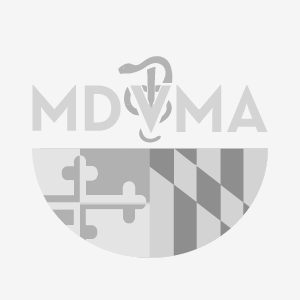
Jonica Thompson
DVM, MS
Speaker Bio
Dr. Jonica Thompson is a Veterinary Medical Officer for USDA APHIS covering the Maryland and Delaware area. She is responsible for inspecting import/export facilities, serving as the Situation Unit Leader for HPAI outbreaks, and providing accreditation outreach to local veterinarians. She is currently exploring epidemiology and disease surveillance for Maryland, Delaware, Virginia, and the District of Columbia. During her free time, she enjoys spending time with her 7-month-old daughter and catching up on much-needed attention for her 2 cats, Romeo and Juliet.
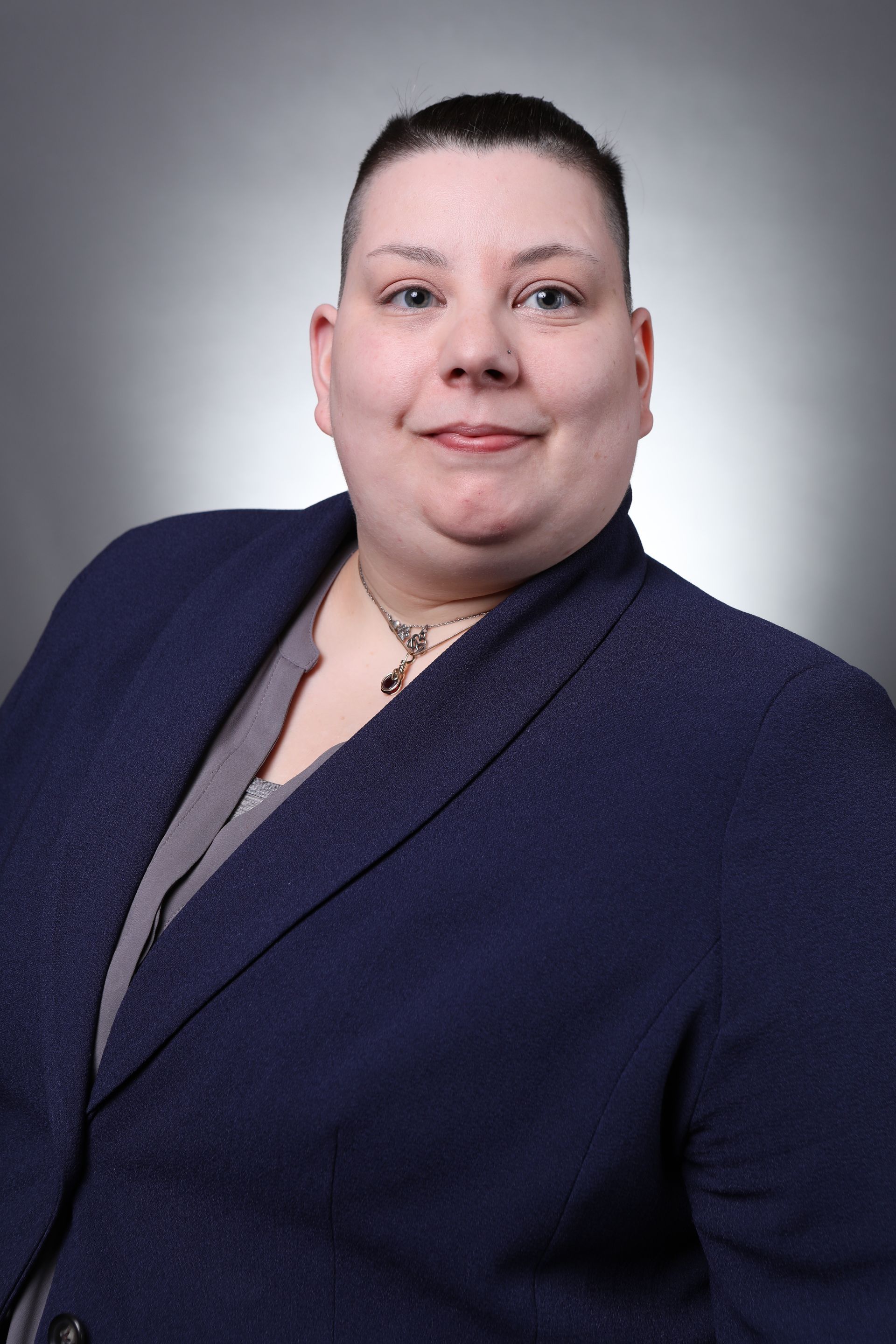
Ashley Nichols
DVM
Speaker Bio
Dr. Ashley I Nichols DVM, is the immediate past president of the MDVMA, Continuing Education Committee Chair and Lead veterinarian at Banfield Pet Hospital of Arundel Mills. Dr. Nichols has been involved with veterinary medicine since 2008, receiving their Bachelors in Veterinary Technology in 2011 from Becker College in Massachusetts. They graduated from Ross University College of Veterinary Medicine in 2015, after spending their clinical year at Oklahoma State University. After graduation they worked in West Virginia until joining Banfield in June of 2016. Since joining Banfield, they have worked at multiple locations until joining the Arundel Mills location in April of 2020. Dr. Nichols has been very active with the Maryland Veterinary Medical Association (MDVMA).
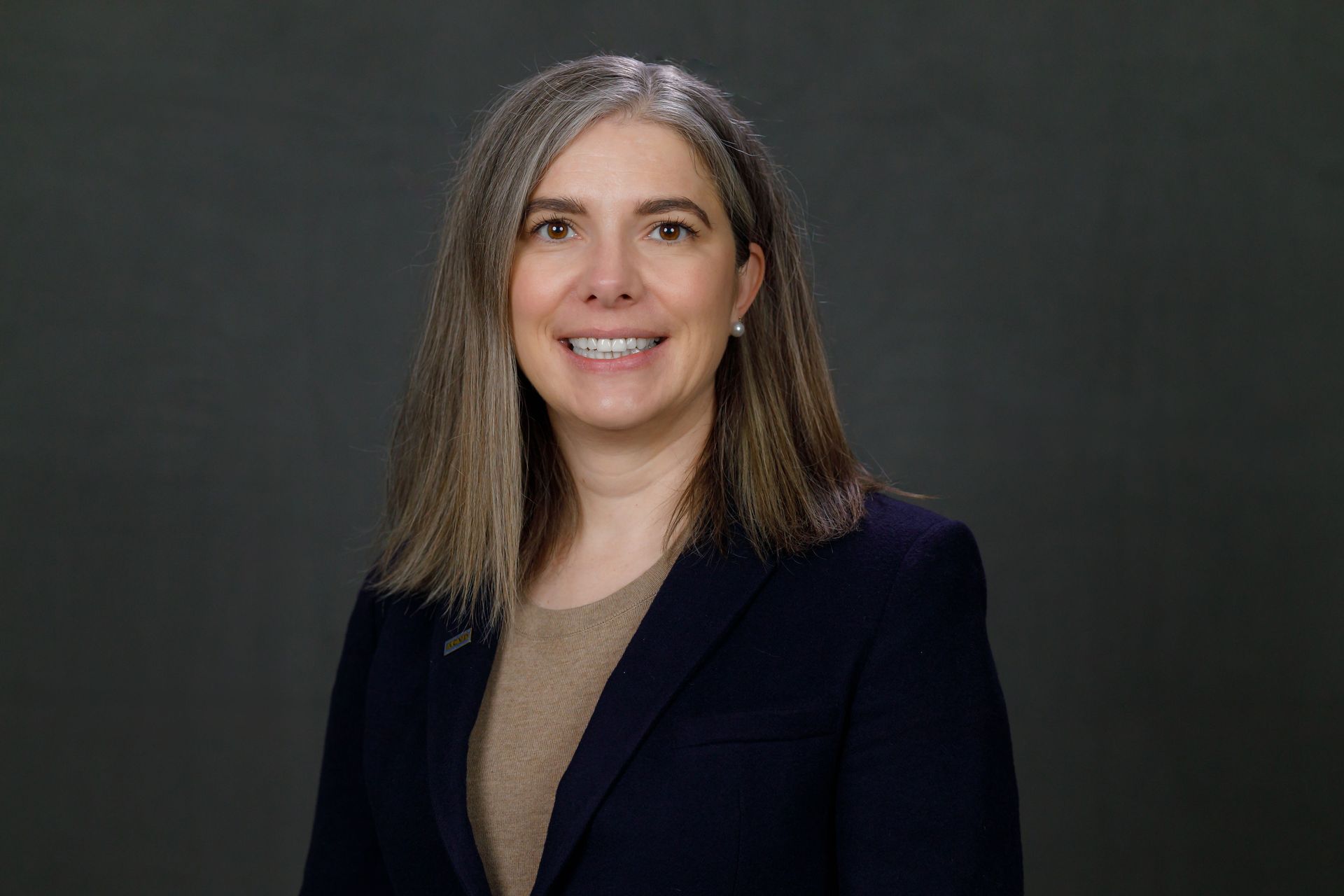
Meghan Solc
DVM, DACVD
Speaker Bio
Meghan grew up on a hobby farm in Brockville, Ontario, Canada, where her love for animals flourished. In addition to her farm chores, she began working at the local Brockville Animal Hospital at the age of 13 and loved every moment of it. Meghan later moved to Prince Edward Island, Canada, where she ultimately achieved her dream of becoming a veterinarian, receiving her Doctorate in Veterinary Medicine in 2012 from the Atlantic Veterinary College. After graduation, Meghan relocated to Toronto, Ontario, to complete a rotating internship followed by a specialty dermatology internship. Her passion for dermatology deepened, and she was fortunate to be accepted into a residency with Dermatology for Animals. In 2018, she became a diplomate of the American College of Veterinary Dermatology.
Meghan has continued her work with Dermatology for Animals in Akron, Ohio, and recently moved to the Catonsville, Maryland, location. She has trained two dermatology specialty technicians and continues to work with residents through the ACVD. She currently resides in Baltimore with her wife, Katie, and their fur kids, Bruce, Iris, and Max. When she's not promoting the field of veterinary dermatology, you can find Meghan traveling, hiking, rowing, and exploring new foodie spots.
Meghan Solc, DVM, DACVD
Dermatology for Animals
Thrive Pet Healthcare https://www.dermatologyforanimals.com
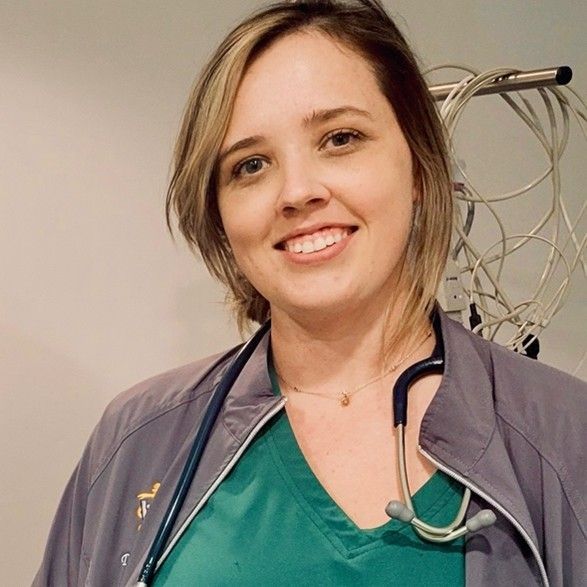
Kaitlyn Eller
DVM
Speaker Bio
Dr. Kaitlyn Eller completed an undergraduate degree in Marine Biology at Texas A&M University in Galveston Texas. She went to St. Matthew’s University in the Cayman Islands for her Doctorate in Veterinary Medicine. Her clinical year was completed at University of Illinois. Her veterinary externships were at Georgia Aquarium and Shedd Aquarium. She worked as an overnight emergency doctor for cats, dogs, and exotics at Midwest Bird and Exotic Animal Hospital for 3 years. She moved to Northern Virginia during the pandemic and worked as an exotic animal medicine and emergency vet at Pender Exotic Animal Hospital in Fairfax, Virginia for 4 years. Earlier this year she transitioned to emergency medicine only for all species, working for Veterinary Emergency Group in D.C.

Kent McClure
DVM, JD
Speaker Bio
Assistant Executive Vice President & Chief Advocacy Officer, American Veterinary Medical Association
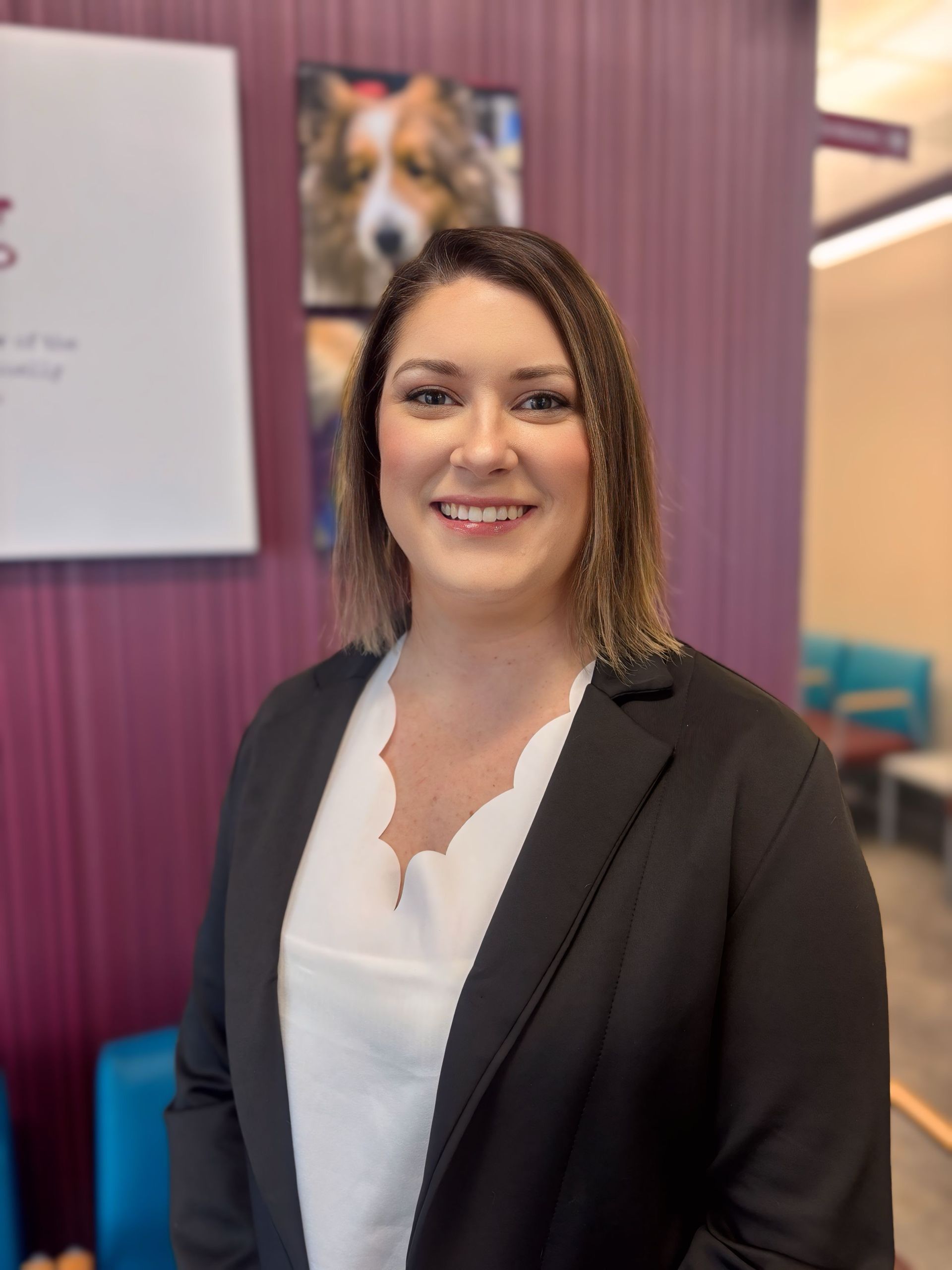
Brandie Johnson
RVT, LVT
Session Descriptions
Sick, Shocked, and Septic: Recognize, Respond, Recover
Sepsis is one of the most life-threatening yet misunderstood conditions we see in veterinary emergency and critical care. In this technician-focused session, we’ll break down the pathophysiology of sepsis in a practical, easy-to-digest way—then shift gears into the veterinary nursing strategies that save lives. From early recognition and patient triage to fluid therapy, monitoring, and hands-on interventions, this talk will highlight the critical role veterinary nurses play in turning the tide for sick, shocked, and septic patients.
20 Ways to Save a Life: Kirby’s Rule in Action
Kirby’s Rule of 20 is more than just a checklist—it’s one of the most effective tools for managing complex cases and saving lives. In this session, we’ll explore how veterinary nurses can apply each parameter to guide daily ICU care, prioritize patient needs, and advocate for the critically ill. Through real-world examples and actionable takeaways, we’ll bring all 20 concepts to life—helping technicians approach every case with confidence, clarity, and clinical intention.
The Utilization Gap: Why It’s Costing You Your Team
Veterinary nurses are trained to do so much more than hold patients and clean kennels—but underutilization continues to plague our profession. In this candid session, we’ll explore how poor utilization impacts team morale, patient care, and hospital efficiency—and what we can do about it. Whether you’re a veterinary nurse looking to advocate for your role or a leader ready to rethink your staffing model, you’ll leave with practical strategies to bridge the gap and build a stronger, more sustainable team.
Speaker Bio
Brandie Johnson, RVT, LVT, is the Training & Education Coordinator at Dogs and Cats Emergency and Specialty, where she transforms complex clinical concepts into practical, digestible education. She also serves as the co-Training Coordinator for a team of 40+ veterinary nurses across seven specialties, supporting growth, mentorship, and clinical excellence at every level.
Known for her dedication to technician development (and her ever-growing collection of flashcards), Brandie’s approach blends structure with strategy—and just enough fun to keep learning memorable.
She began her career in emergency medicine before even graduating from technician school, working three jobs and proving early on that a license isn't just a piece of paper—it’s a foundation for meaningful impact. Today, she designs training programs, builds protocols, and leads CE sessions that make sense and make a difference.
She is a proud member of NAVTA, AVTE, AVHTM, and MDVMA, advocating for technician utilization, credential recognition, and education that resonates in real-world practice.
Outside of work, Brandie has spent 12 years fostering pets and is deeply committed to helping animals find their forever homes—sometimes discovering that they’re already in hers. She can often be found snuggling with one of her furry family members, coffee in hand, surrounded by study notes and a dog or cat who thinks they’re helping.
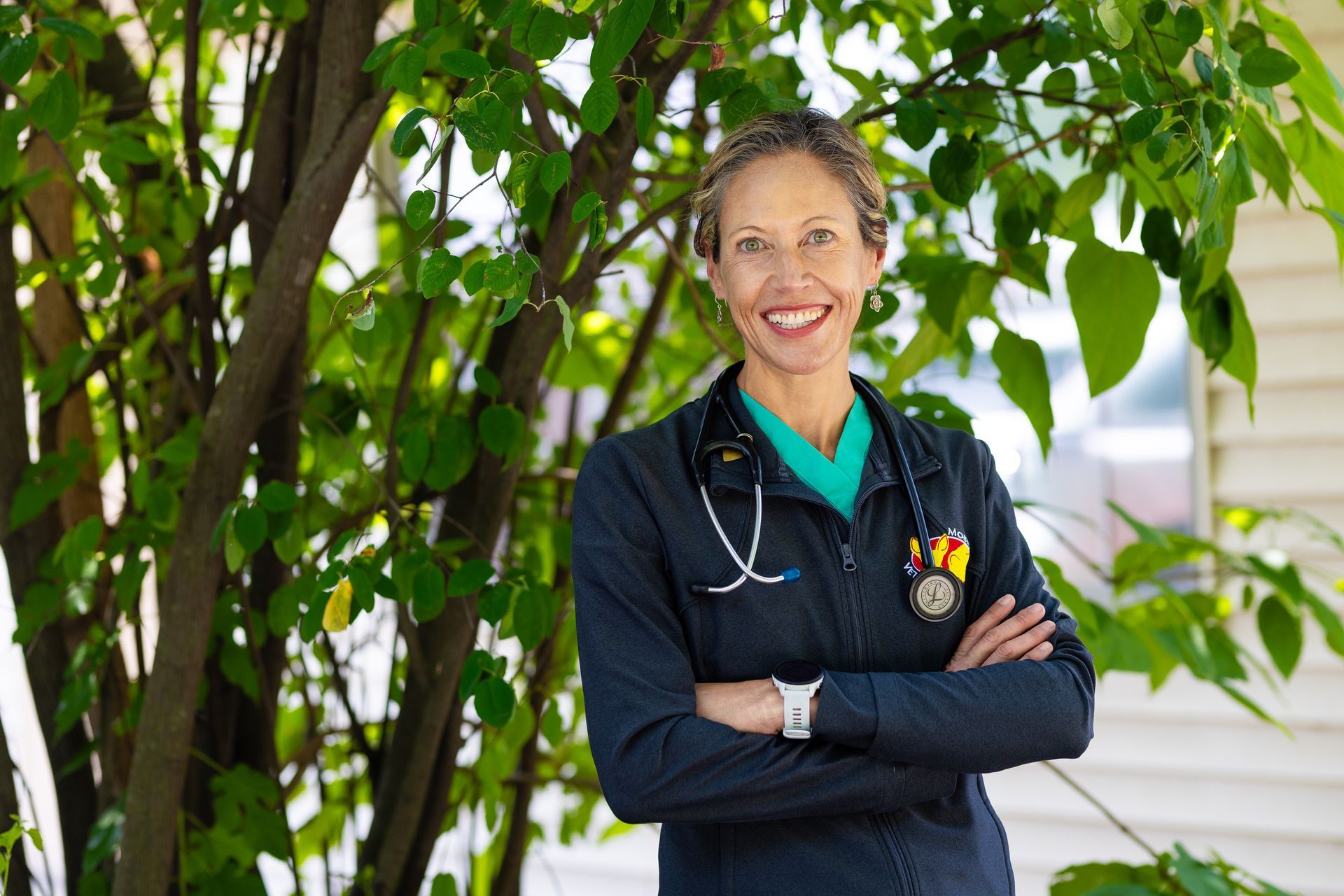
Elizabeth Arthur
DVM DACVS-SA
Session Descriptions
Brachycephalic Obstructive Airway Syndrome: Nares & Soft Palate Surgery
Brachycephalic pets are an ever-increasing segment of our patient population, but their short faces mean they are all affected by Brachycephalic Obstructive Airway Syndrome (BOAS). Shortening the soft palate and widening the nostrils improves airflow through the upper respiratory tract, and these procedures can be done in a general practice setting at the time of spay or neuter.
Brachycephalic Patients: Beyond Airway Surgery
Brachycephalic patients are affected by a wide range of health conditions, making their care challenging. While their airways can be improved with nares & soft palate surgery, they remain high risk anesthesia patients and prone to many other health conditions. We'll discuss sedation & anesthesia in brachycephalic patients, as well as hiatal hernias, cystine urinary calculi, and humeral condylar fractures that may be seen in French Bulldogs.
Cystotomy & Urethrostomy: Technique & Troubleshooting
While most cystotomy procedures are routine, these cases may sometimes be very challenging. We'll review cystotomy and urethrostomy techniques and discuss tips for difficult cases.
Speaker Bio
Dr. Elizabeth Arthur is a board-certified small animal surgeon in Maryland. She travels to veterinary practices in the greater Frederick, Baltimore, and Montgomery County areas to perform specialty surgeries. Dr. Arthur grew up in Missouri and attended the University of Missouri for both undergraduate and veterinary degrees. Go Mizzou!
Dr. Arthur completed a one year rotating internship at The Animal Medical Center in New York, and then a surgical internship at Gulf Coast Veterinary Surgery in Houston. Her small animal surgery residency at Chesapeake Veterinary Surgical Specialists brought her to Maryland, and she's been here ever since.
Dr. Arthur performs orthopedic surgery including TPLOs for cruciate ligament injuries, as well as soft tissue surgery. She has a special interest in helping our snub-nosed brachycephalic friends like Frenchies, Pugs, and English Bulldogs breathe more comfortably and live more active lives.
Outside the OR, Dr. Arthur loves hiking and running and can often be found on the trails with her husband Jeff and dog Della. They’re proud members of the Frederick Steeplechasers (link to steeplechasers.org), surely the best running club ever. She also has three horses, Amity, Bijoux, and Amity’s daughter Annie.
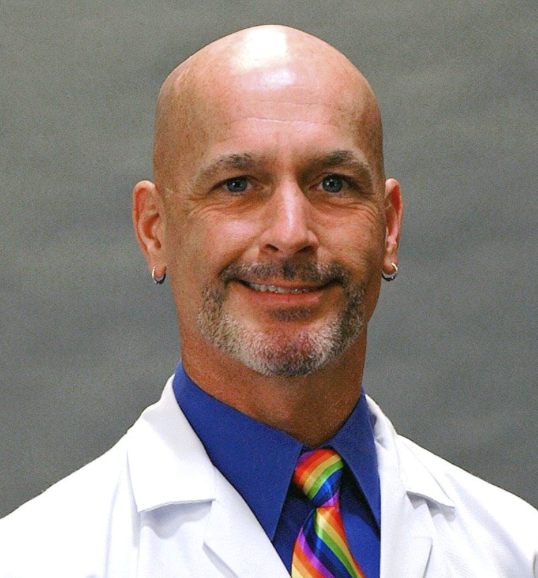
Mark D. Freeman
DVM DABVP
Speaker Bio
Dr. Freeman is a graduate of the Auburn University College of Veterinary Medicine. He began his professional career in private practice in Alabama and Georgia where he worked for 8 years. His career in academia began in 2004 at Tuskegee University where he taught small animal internal medicine. He moved to Ross University in 2009 where he taught small animal surgery, and then to Virginia Tech in 2012 where he has since been a member of the clinical faculty in the Community Practice service.
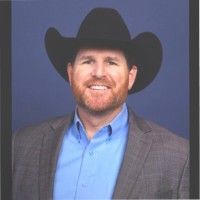
Dr. James “JD” Conway, III
DVM
Session Description
This presentation will cover the long term efficacy and safety considerations of 2.5% iPAAG (Arthramid), including an in-depth review of over 1700 horses that competed in both flat racing and sport horse events. Additional highlights to be discussed include; equine joint anatomy and physiology, the MOA of 2.5% iPAAG, and future research directives.
Speaker Bio
James D. Conway III, DVM is the Director of Professional Veterinary Services at Contura Vet. He was previously Director of Equine Veterinary Services at Dechra Veterinary Products. JD has been an industry veterinarian for the past 8 years. Prior to his role in industry he served as an associate veterinarian at a large regional referral lameness and rehab facility in North Texas. Additionally, Dr. Conway was a part time veterinary field consultant with Bimeda Pharmaceuticals and Arthrodynamics Technologies from 2013-2017. Dr. Conway completed an internship at ESMS in 2013 and upon completion started his own lameness and sports medicine practice in the panhandle of Texas and Oklahoma. He is a 2012 graduate of Colorado State University Veterinary School where he was heavily involved with equine stifle and condylar fracture research. Dr. Conway has been invited to speak at numerous universities in the US, Mexico, and Canada and at the ACVS and AAEP national conferences.
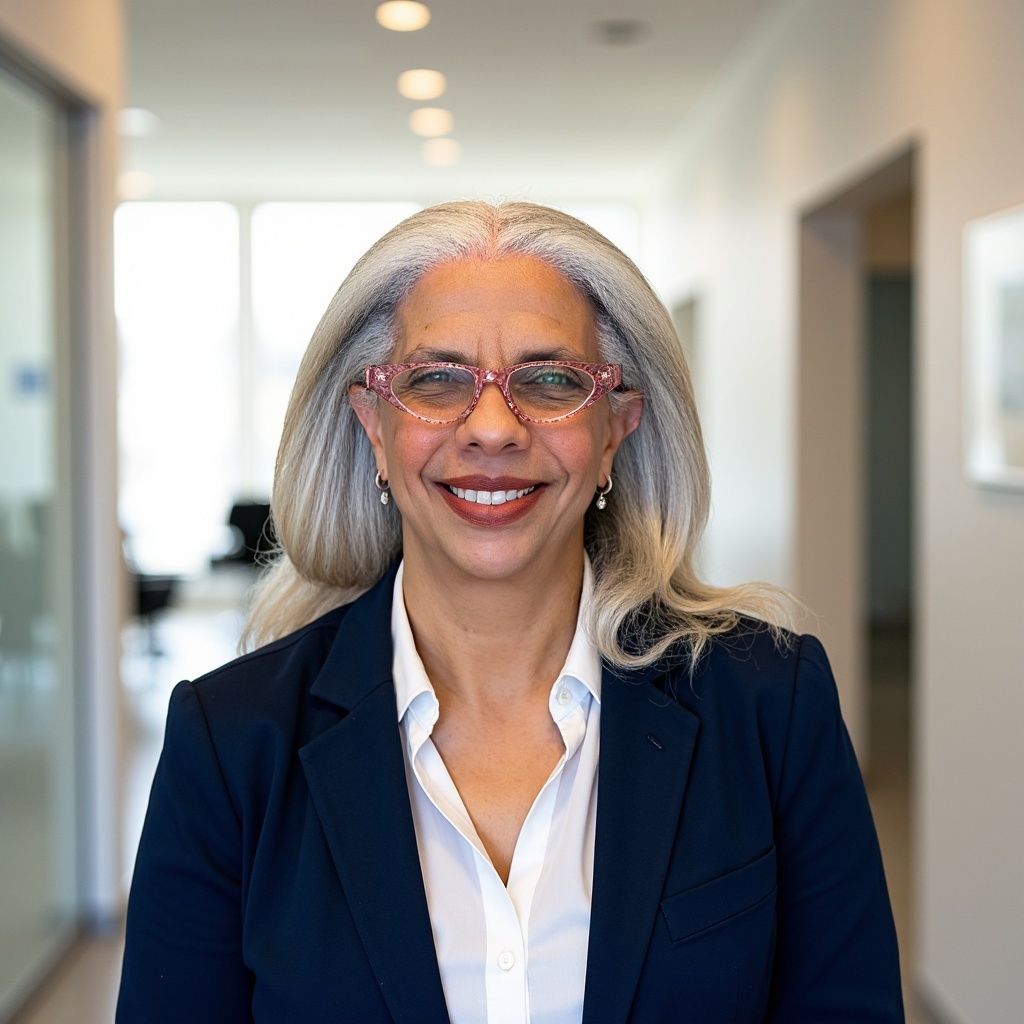
Gay Smith-Pike
DVM
Speaker Bio
Dr. Gay Smith-Pike is an accomplished veterinary leader with over two decades of experience in veterinary medicine and operations. Throughout her career, she has been deeply committed to veterinary excellence, people development, and promoting the well-being of both animals and veterinary professionals.
As the Senior Director of Medicine & Operations at BondVet, Dr. Smith combines her passion for clinical excellence with her dedication to fostering a supportive and thriving environment for veterinary professionals. Throughout her career, she has held key leadership roles across the veterinary field, including positions such as National Director of Veterinary Growth, Development & Wellbeing; Director of Veterinary Quality; Partner DVM & Chief of Staff Veterinarian within multiple veterinary organizations; demonstrating a proven ability to lead and develop high-performing teams in diverse clinical and operational settings. Dr. Smith is recognized for her ability to lead teams, cultivate talent, and promote the well-being of both veterinary staff and patients. Her focus on professional development, psychological safety, and organizational culture has significantly enhanced performance across multiple hospitals and regions.
Dr. Smith holds a Doctor of Veterinary Medicine (DVM) degree from Tuskegee University, where she also completed an Internship in Clinical Pathology. She is certified as a Lean Six Sigma Green Belt, an AVMA Well-Being Educator & Presenter, and a Frank Communication Certified Facilitator. Her commitment to mental health and wellness in the veterinary profession is further demonstrated by her certifications as an Adult Mental Health First Aid Provider and QPR Suicide Prevention Gatekeeper.
In addition to her leadership roles, Dr. Smith has actively contributed to the veterinary profession through mentorship, coaching, and speaking engagements at various industry conferences & events. She is known for her dedication to creating positive and inclusive work environments that promote psychological safety, which aligns with her philosophy of fostering long-term professional growth and well-being within the veterinary community.
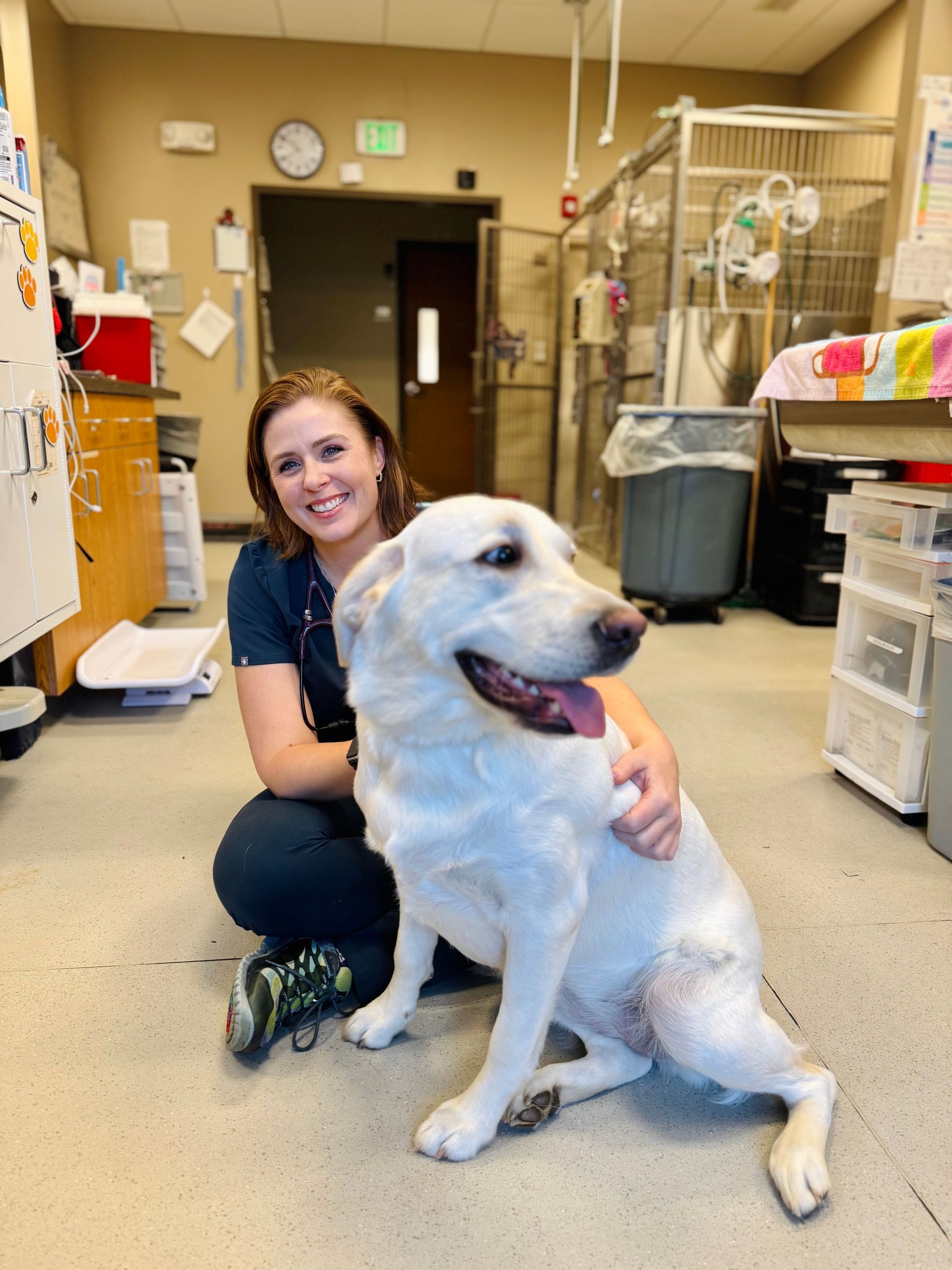
Christine Kilppen
DVM, DABVP
Session Descriptions
Bottoms up! A Fun Dive into Rectal Administration of Medications in the ER setting
Rectal drug administration is not very common in veterinary medicine but can be a useful method for delivering various drugs to patients that are unwilling or too unstable to take medication orally. This discussion will cover the pharmacokinetics of rectal drug delivery and provide real-world examples.
Staying alive or another one bites the dust?!
The Reassessment Campaign on Veterinary Resuscitation (RECOVER) provides evidence-based CPR guidelines for veterinary practice that was originally published in 2012 and updated again in 2024. This discussion will cover the principles of Basic Life Support, Advanced Life support, and team dynamics.
The Sick Urinary Obstructed Cat
Feline urinary obstructions are a common presenting condition to emergency rooms.
This presentation evaluates common triage complaints, history indicators, predictors and management of hyperkalemia, and potential complications for improved stabilization and preparation for hospitalization of feline patients.
Speaker Bio
Dr. Christine Klippen earned her DVM in 2009 from Colorado State University and has practiced exclusively emergency medicine since graduation. She became an American Board of Veterinary Practitioner Diplomate in Canine/Feline practice in 2021 and is one of the Founding
Fellows in Emergency Practice Fellowship offered through ABVP. Dr. Klippen became a RECOVER certified instructor in 2019 and has certified veterinary professionals around the country since. Dr. Klippen currently works at Pet ER in Columbia Maryland as an emergency veterinarian and a clinical mentorship coordinator and is passionate about early career opportunities for emergency veterinarians.
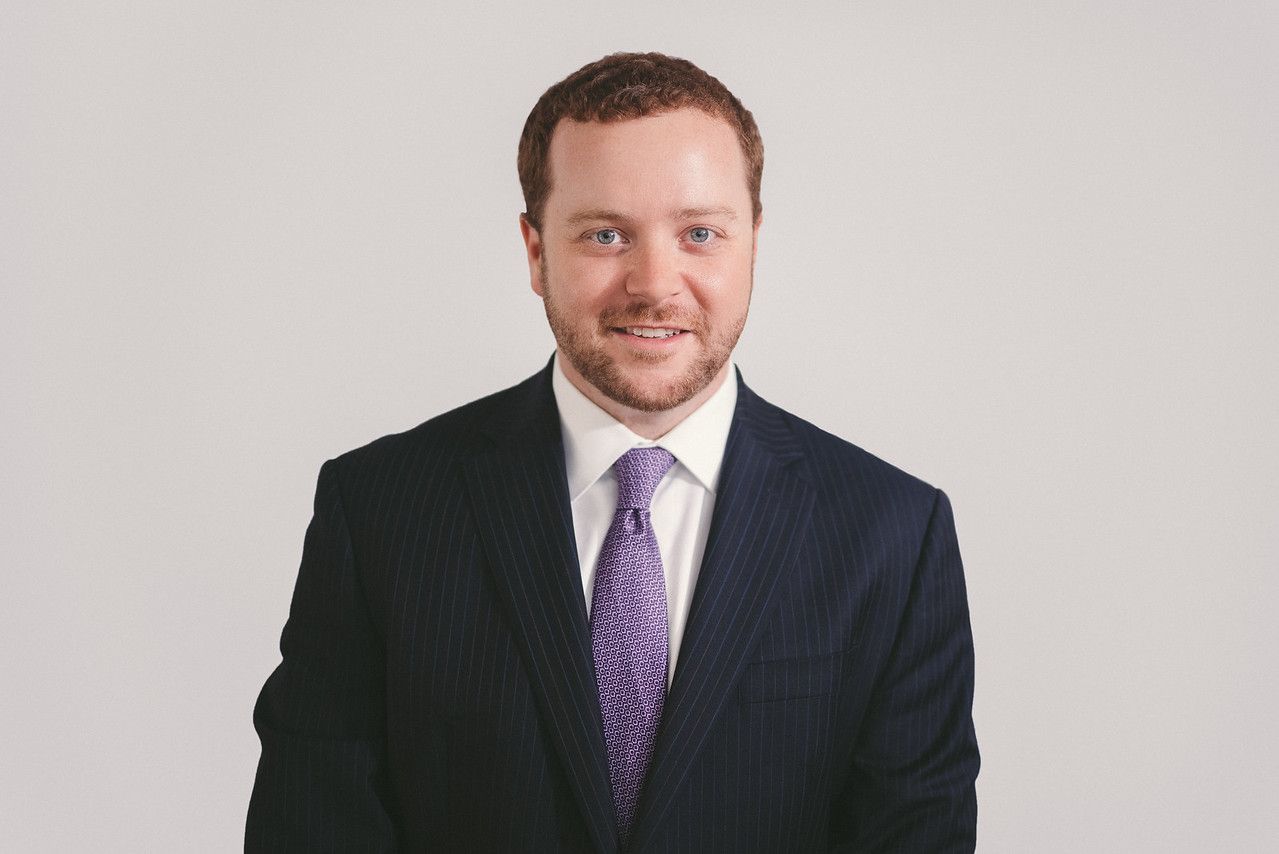
Tim Mcfillin
Speaker Bio
President and Founder of Medical Advisors Group (MAG), which offers strategic financial planning for veterinarians, dentists, physicians, surgeons, and other medical specialists. MAG develops a strategy for helping medical professionals manage their debt and invest wisely for the future. For the past 15 years, has been a Registered Investment Advisor, AVMA Life Advisor and Certified Long-Term Care Planner.
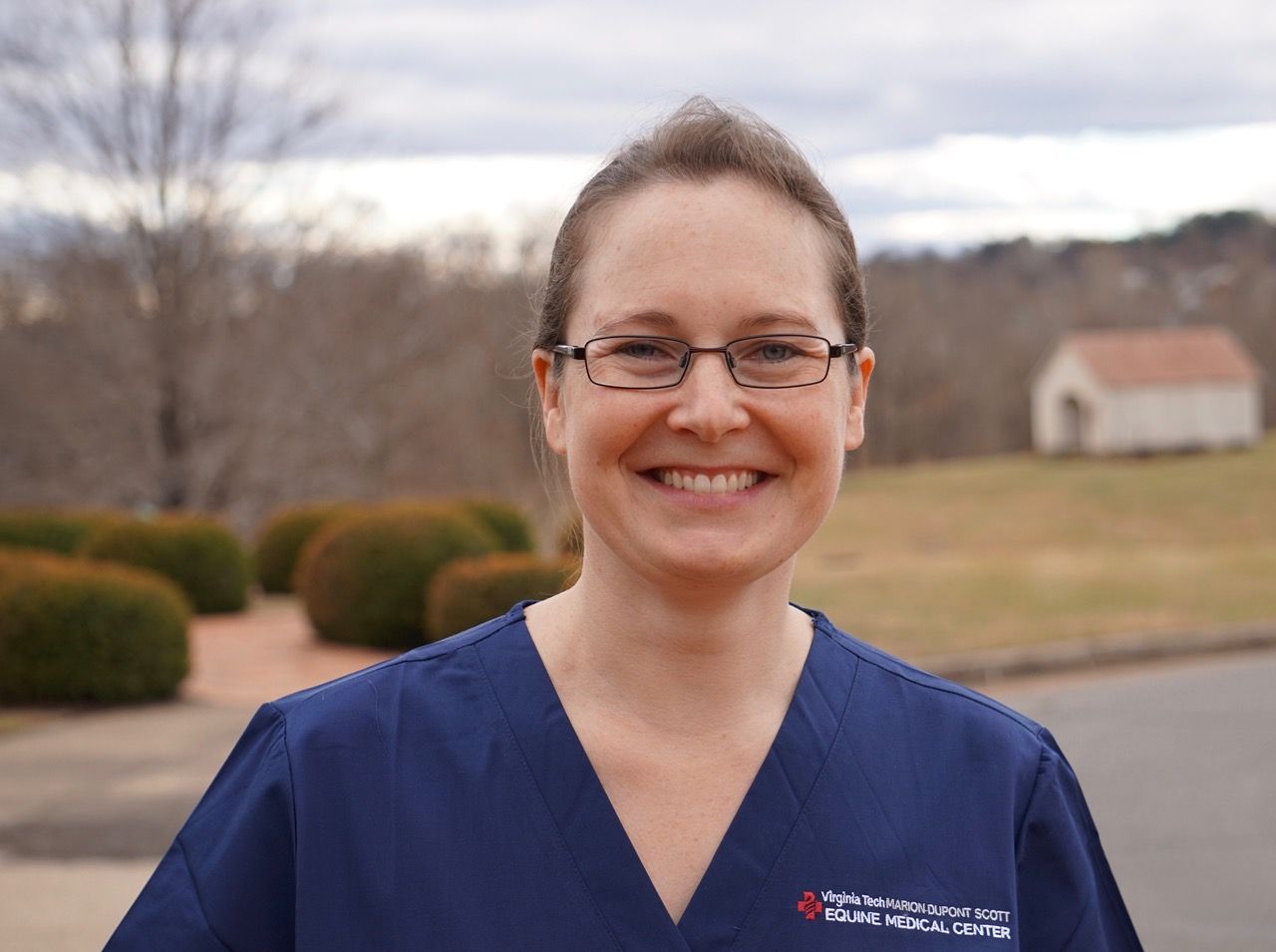
Elizabeth MacDonald
BVMS, MS, DACVIM (LAIM)
Speaker Bio
Dr. MacDonald earned her bachelor of arts in biology from Skidmore College in Saratoga Springs, New York before completing her bachelor of veterinary medicine and surgery with honors at the University of Glasgow in Glasgow, Scotland. She also received a master of science in biomedical and veterinary sciences from the Virginia-Maryland College of Veterinary Medicine in 2015.
Prior to becoming a clinical instructor at the Marion duPont Scott Equine Medical Center, Dr. MacDonald completed an internship at the New England Equine Practice in Patterson, New York and a residency in large animal internal medicine at the Marion duPont Scott Equine Medical Center.
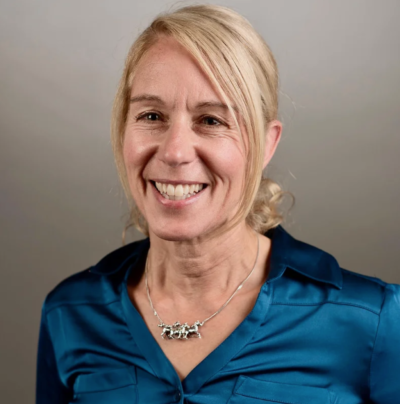
Amy C. Polkes
DVM
Speaker Bio
Dr. Amy Polkes is a board certified Equine Internal Medicine specialist. Dr. Polkes received her Bachelor in Science from Cornell University and her degree in Veterinary Medicine from Purdue University School of Veterinary Medicine. She was in private equine practice for several years before continuing her training at the University of Florida College of Veterinary Medicine with a residency in Large Animal Internal Medicine. In 2002, after completing her residency program, she established an Equine internal medicine mobile consulting practice in Maryland and Virginia as well as providing consultation for Antech Diagnostics on equine medicine cases. Dr. Polkes has now grown her referral practice, Equine Internal Medicine and Diagnostic Services (Equine imed), to provide mobile equine internal medicine services in Maryland, Virginia, Pennsylvania, New York and Connecticut . Her goal is to provide an alternative to referral institutions, allowing for evaluation at your farm or at your primary veterinarian’s facility.
The most common cases that are referred for an internal medicine consultation are: Respiratory disease – including poor performance, chronic cough and difficult respiratory cases. Gastrointestinal diseases- gastroscopy, weight loss, colic, chronic colic, other. Neurological disease- Comprehensive neurological evaluations, CSF taps. Ophthalmology-difficult ophthalmology cases. Cardiac- evaluation of murmurs, arrhythmia’s, PPE including echocardiography, ECG and holter monitor.
Dr. Polkes is also the Medical Director at Antech Diagnostics. She has helped to facilitate the expansion of Equine Diagnostic testing within Antech Diagnostics to provide more comprehensive and advanced equine diagnostic testing. She continues to work with Antech to offer quality and affordable diagnostic testing to equine practitioners and provide continuing education on equine diagnostic testing.
Dr. Polkes resides in Maryland with her husband (who specializes in small animal internal medicine), her 2 teenage children and her 3 dogs. She enjoys hiking, biking and skiing and spending time with her family at all of the various sports activities!
